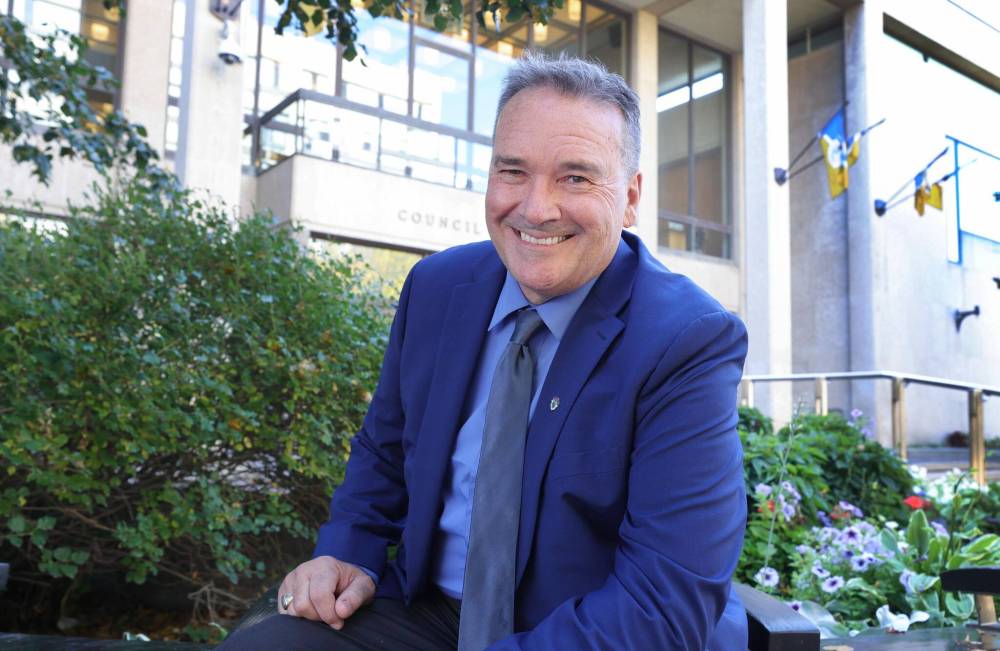A good start for safer transit
Advertisement
Read this article for free:
or
Already have an account? Log in here »
To continue reading, please subscribe:
Monthly Digital Subscription
$0 for the first 4 weeks*
- Enjoy unlimited reading on winnipegfreepress.com
- Read the E-Edition, our digital replica newspaper
- Access News Break, our award-winning app
- Play interactive puzzles
*No charge for 4 weeks then price increases to the regular rate of $19.00 plus GST every four weeks. Offer available to new and qualified returning subscribers only. Cancel any time.
Monthly Digital Subscription
$4.75/week*
- Enjoy unlimited reading on winnipegfreepress.com
- Read the E-Edition, our digital replica newspaper
- Access News Break, our award-winning app
- Play interactive puzzles
*Billed as $19 plus GST every four weeks. Cancel any time.
To continue reading, please subscribe:
Add Free Press access to your Brandon Sun subscription for only an additional
$1 for the first 4 weeks*
*Your next subscription payment will increase by $1.00 and you will be charged $16.99 plus GST for four weeks. After four weeks, your payment will increase to $23.99 plus GST every four weeks.
Read unlimited articles for free today:
or
Already have an account? Log in here »
Hey there, time traveller!
This article was published 29/09/2023 (786 days ago), so information in it may no longer be current.
It’s often stated — quite correctly, as it turns out — that we only get one chance to make a good first impression.
This familiar bit of folksy philosophy is probably more relevant now than it ever has been, in this era of perpetual social-media outrage, deeply bunkered mentalities and knee-jerk demonization — by certain segments of society — of anyone and anything that runs counter to a preferred worldview.
With all that potential for public-image peril in mind, it can fairly be said that Winnipeg Transit did an admirable job this week of advancing the establishment of its promised security force by introducing a leader who gives every impression of understanding his new role and the delicate balance of priorities to which he must attend if he hopes for the much-needed initiative to succeed.

RUTH BONNEVILLE / WINNIPEG FREE PRESS
Bob Chrismas has been hired to lead the city’s new Community Safety Team.
Effective immediately, Robert (Bob) Chrismas, a 34-year veteran of the Winnipeg Police Service with extensive experience in street-level policing, community safety and conflict resolution, will assume the leadership of Winnipeg Transit’s soon-to-launch “community safety team.”
In making his first public statement in his new role, Chrismas described the new force’s approach to making public transportation safer, for both drivers and riders, as one focused on outreach rather than enforcement, whose actions will be guided by purposeful compassion rather than blunt-force confrontation.
“It’s not so much about enforcing or taking somebody off a bus, but more (about) seeing what they need and trying … (to) connect them with resources,” he explained. “I don’t think we’re going to enforce our way out of people having to squat in bus shacks when it’s 40 (C) below. We’re going to have to take a different approach.”
There are no doubt some in the city (including, one might surmise, certain individuals campaigning for elected office under a “Fighting for Public Safety” banner) who insist the answer to the current issues of violence aboard buses and homelessness and addiction on display in transit shelters is a straightforward enforce/arrest/disperse strategy.
Such an approach would fail to recognize why the issues that plague the transit system have arisen; in the same way clearing out and knocking down tent encampments is a recipe for failure, hard-line “safety” enforcement on buses and along routes would merely relocate, rather than begin to resolve, the problem.
While it isn’t, and cannot be, the job of Winnipeg Transit’s security force to address the root causes of violent crime, homelessness and addiction — that responsibility rests with governments that have, to date, failed miserably at the undertaking — the task of making public transit safer must necessarily take into account the societal circumstances that drive the individual misdeeds.
Arming the projected 24-person security force with handcuffs and protective gear (but not sidearms or tasers) and authorizing the officers to arrest and detain is a necessary measure, but no moreso than ensuring they are equally equipped with self-defence and de-escalation techniques.
“This is all about community safety,” said Chrismas. “Being out there and doing this role, they’re going to have to be highly trained in self-defence and trauma-informed, compassionate force where needed.”
Given that, according to the Amalgamated Transit Union Local 1505, the year-to-date total of incidents requiring security response exceeds 200 (including at least 80 physical assaults on drivers), the urgency of getting the security force up and running cannot be overstated.
Recruitment and training of security officers should begin as soon as the required training program is in place. With a good first impression having been successfully made, it’s time for this long-overdue endeavour to deliver the results its seemingly well-chosen leader has promised.

